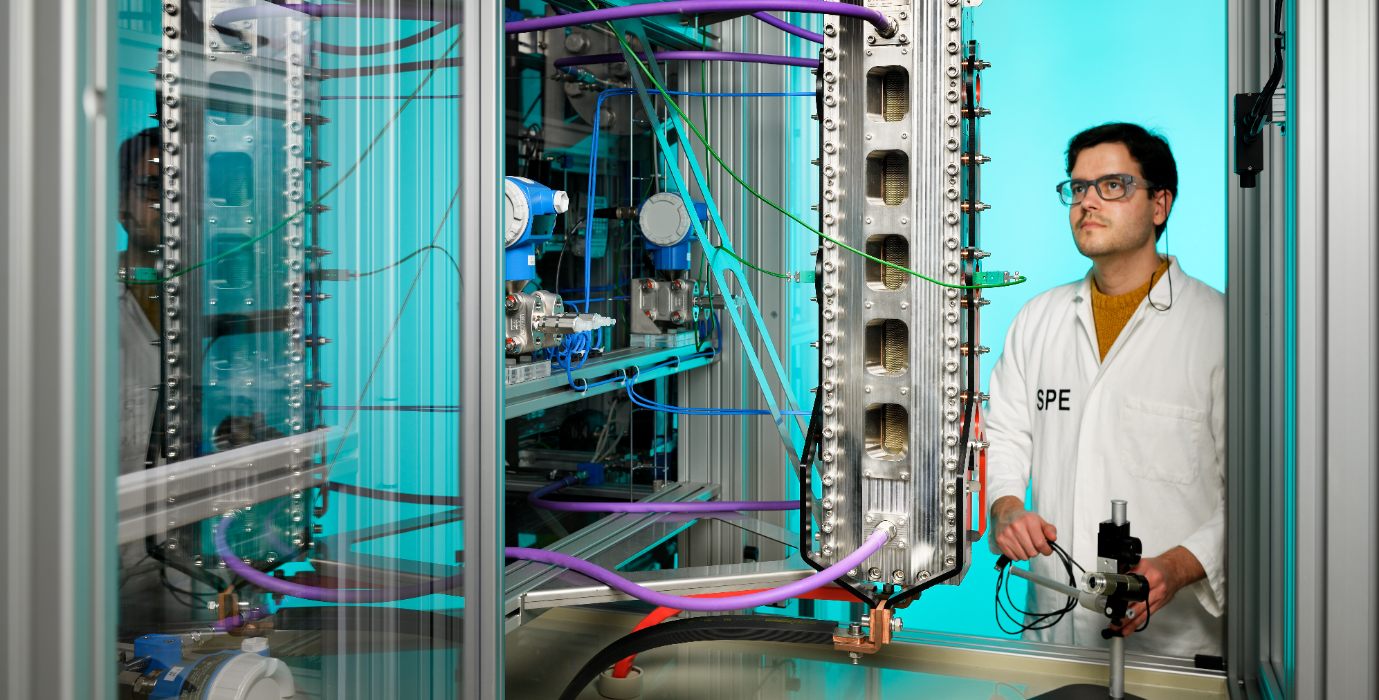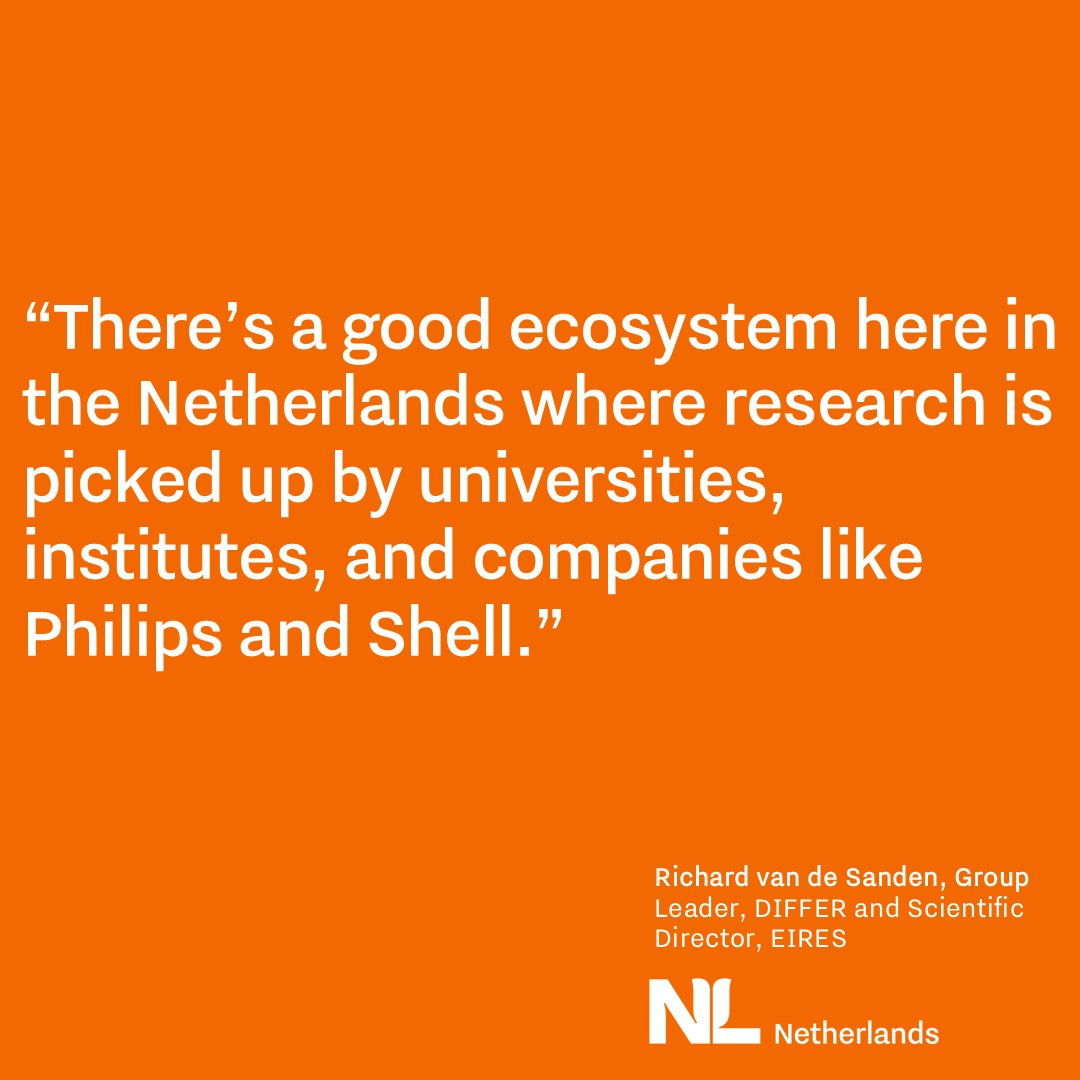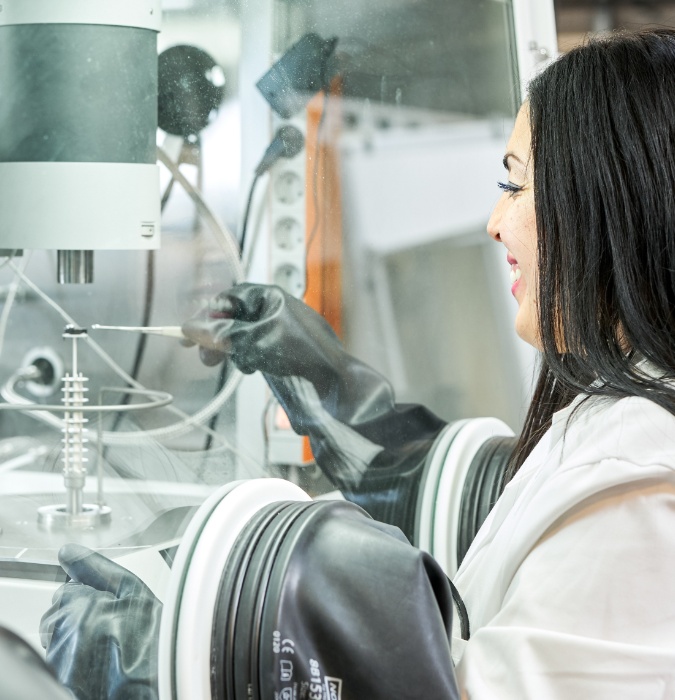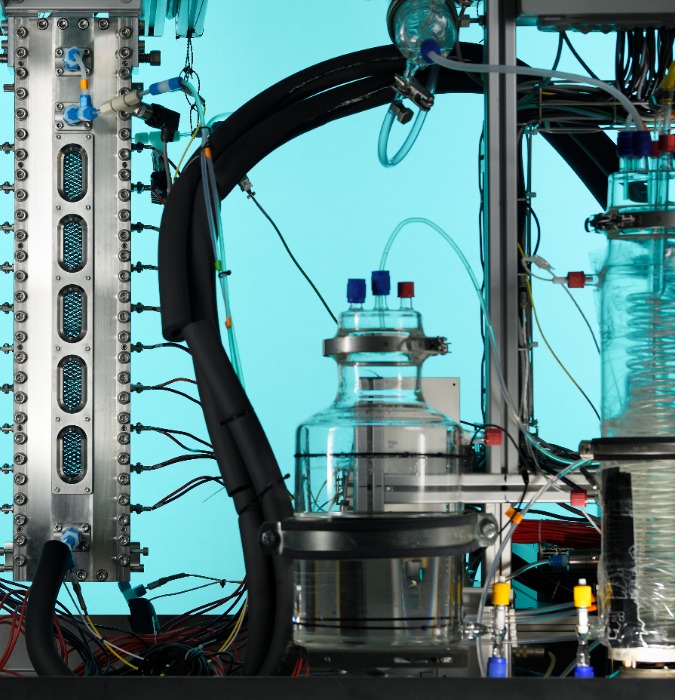Energy Materials in The Netherlands
Quickly go to
- Definition & Importance
- Market Size & Growth
- Key Players & Market Share
- Technological Advancements
- Regulatory & Policy Environment
- Investment Climate
- Start your career in the Netherlands!
- More on Energy Materials in NL

A key player is Integer Technologies, co-founded by Pau Brossa Rodriguez in Eindhoven in 2021. Pau’s work began with the CASA project at Eindhoven University of Technology, developing alternative energy concepts for social housing that significantly reduced energy costs and emissions. Integer Technologies continues to focus on improving energy efficiency in buildings by addressing grid congestion and optimising smart energy use. Pau highlights the Netherlands’ supportive ecosystem, “There’s something quite special in Eindhoven...you have this really big ecosystem that supports the production of hardware.” The country’s strong focus on green technologies positions it as an energy materials leader.
Definition & Importance
The energy materials industry in the Netherlands plays a crucial role in the country’s energy transition and efforts to build a more sustainable economy. Energy materials include a variety of substances essential for generating, storing, and optimising energy. This category encompasses batteries, solar panels, advanced materials for wind turbines, and hydrogen fuel cells.
“It’s a really cool playground for us to automate processes that have been done for the past 10 years in a very manual way.”
-Pau Brossa Rodriguez, Co-founder Integer Technologies
The industry is instrumental in advancing renewable energy, reducing carbon emissions, and achieving climate goals in the Netherlands. It supports the nation’s commitment to cutting greenhouse gas emissions by 49% by 2030 and up to 100% by 2050.
With its robust scientific infrastructure, innovative mindset, and scientific expertise, the Dutch energy materials sector is driving technological advancements with minimal environmental impact to address global challenges like climate change, energy security, and sustainability. Some notable examples are the Porthos Project that aims to capture and permanently store carbon dioxide (CO₂) emissions from industrial companies in the Port of Rotterdam. Operations are expected to start in 2026, significantly contributing to the Netherlands' climate targets. Another advancement is the Holland Hydrogen 1 facility under construction at the Maasvlakte conversion park. As Europe's largest green hydrogen plant, it is designed to produce 60,000 kilograms of renewable hydrogen per day starting in 2025. The Rotterdam Hydrogen Pipeline will facilitate connections for companies looking to produce or use hydrogen. WarmteLinQ is an underground pipeline project designed to transport waste heat from the Rotterdam port to The Hague, providing a sustainable heating solution for homes and businesses.
Market Size & Growth
The energy materials industry is rapidly growing, with the share of renewable energy in the Netherlands doubling from 2008 to 2019, particularly in offshore wind and rooftop solar. By 2018, renewable energy accounted for 7.4% of total final energy consumption, and this percentage continues to rise.
Segment-Specific Insights
As of 2023, the energy materials market achieved a 7.2% CAGR, with innovations in smart grids and energy efficiency, fuelling the country’s sustainable future. Recent reports project an 8% compound annual growth rate (CAGR) over five years. Major segments propelling this growth are advanced solar photovoltaic materials, next-generation battery technologies, offshore wind energy components, hydrogen production and storage materials and smart grid and energy efficiency technologies.
Productivity and Economic Impact
The energy materials sector contributes approximately €18.5 billion annually to the Dutch economy, supporting 45,000 skilled jobs. Driven by innovation and sustainability, it boosts productivity, attracts investments, and creates opportunities in research, manufacturing, and advanced technologies. Richard, Group Leader at the Dutch Institute for Fundamental Energy Research (DIFFER) and Scientific Director at the Eindhoven Institute of Renewable Energy Systems (EIRES) believes that international professionals are drawn to the Netherlands for its focus on interface engineering and innovative manufacturing.
Key Players & Market Share
The Dutch energy materials sector blends established firms and startups, with leading players such as Philips, DSM, and Shell investing in renewable energy instead of fossil fuels. Startups focus on niches like battery technology and green hydrogen production.
“We enable high-speed charging, high energy density, and a longer cycle life battery of the future by having a 3D structured lithium metal anode.”
- Sandeep Unnikrishnan, Founder & CTO LionVolt
Key institutions, including TNO, ASML, TU Delft, and Solliance Solar Research, drive cutting-edge advancements, collectively accounting for 60% of national R&D. This vibrant ecosystem fosters collaboration and competition and attracts global talent and investment.


Technological Advancements
Technological developments and advancements in nanotechnology promise higher efficiency, reduce costs, and expand renewable energy accessibility. Researchers in the Dutch energy materials sector are continually pushing boundaries to turn theoretical concepts into practical solutions. Recent breakthroughs include perovskite solar cell technologies, solid-state battery development, and quantum computing for energy optimisation, advanced hydrogen membrane technologies and AI-driven energy material design.
“Achieving climate goals and promoting green hydrogen as an alternative energy source to replace fossil fuels is a central mission..”
- Nicole Meulendijks, Deputy Research Manager TNO, Dept. Materials Solutions
Offshore Wind is a key initiative whose goal is to produce 21 gigawatts of offshore wind energy by 2030, increasing to 50 gigawatts by 2040 and 70 gigawatts by 2050. Another one is The Hydrogen Strategy which aims to enhance the production and use of low-carbon hydrogen. Some others are carbon capture and storage technology reducing industrial emissions, electric vehicles and energy efficiency.
“We’re also looking for a predictive control engineer...but it’s quite a niche topic, so it’s really tricky to find someone.”
-Pau Brossa Rodriguez, Co-founder Integer Technologies
Regulatory & Policy Environment
The Dutch government fosters energy materials innovation through R&D tax incentives, a national hydrogen program, carbon reduction goals, streamlined permits for green startups and significant investment in sustainable technology.
“The government could act as a launching customer by supporting consortia to develop production lines for technologies like electrolysers.”
- Richard van de Sanden, Group Leader, DIFFER Scientific Director, EIRES
Key policies supporting the energy materials industry include the Climate Act that mandates a 49% reduction in greenhouse gas emissions by 2030 and a 95-100% decrease by 2050. The Climate Agreement also outlines specific strategies for various sectors.
Initiatives such as the Circular Economy Policy, Carbon Border Adjustment Mechanism (CBAM), and the European Emission Trading System promote sustainability. The National Energy System Plan further supports the transition, creating a thriving energy technology development and investment ecosystem.
Investment Climate
The Netherlands offers a robust investment climate for energy materials, with public and private sectors actively funding research, infrastructure projects, and startups focused on sustainable technologies. The government provides various incentives for renewable energy investments.
In 2022, the sector attracted over €1.2 billion in venture capital, drawing significant international interest. Key factors include a stable political and economic environment, strategic European location, high-quality scientific infrastructure, an English-speaking business ecosystem and strong intellectual property protections.
As the Netherlands transitions to sustainable energy, energy materials will play a pivotal role in shaping its future.
Start your career in the Netherlands!
- Welcome to NL Job portal
More on Energy Materials in NL
To dive deeper, explore our articles on the 10 most important trends in the Energy Materials and what it’s like working in the industry.

